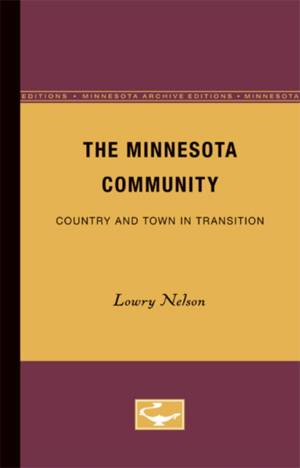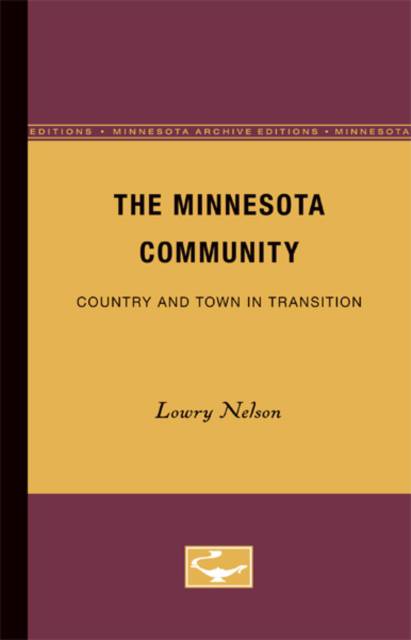
- Afhalen na 1 uur in een winkel met voorraad
- Gratis thuislevering in België vanaf € 30
- Ruim aanbod met 7 miljoen producten
- Afhalen na 1 uur in een winkel met voorraad
- Gratis thuislevering in België vanaf € 30
- Ruim aanbod met 7 miljoen producten
Zoeken
€ 50,45
+ 100 punten
Omschrijving
The Minnesota Community was first published in 1960.Minnesota was almost entirely a wilderness 100 years ago, and for most of the last century it has been predominantly rural in its settlement and agricultural in its economy. Now the state is in dramatic transition, with a blurring of the lines between town and country and a changing economy that gives the lead to industry. How did these changes come about and what do they portend for the future of the state, its industries, and its people? What significance have such changes for the nation as a whole?Professor Nelson's study helps to answer questions like these. A sociologist, he examines the state and its changing aspects with regard to rural life and rural-urban relationships. In this context, he traces the development of the state from its earliest history, describing the land and its settlers, their national origins, composition of farm families and standards of rural living, education, government, and churches, with analyses of the people's attitudes toward schooling, discussion of trends in local government, and history and analysis of church membership, religions represented, and geographic distribution of churches. The rural problem area of the cutover land in northern Minnesota is fully discussed in a separate chapter. In conclusion, the author considers factors which will favor the maintenance of the present farm population and explains why he predicts that the future will see an integration of town and country.The study is unusual in that it encompasses a single state as a unit for analysis and considers many aspects not ordinarily included in sociological studies.
Specificaties
Betrokkenen
- Auteur(s):
- Uitgeverij:
Inhoud
- Aantal bladzijden:
- 192
- Taal:
- Engels
Eigenschappen
- Productcode (EAN):
- 9780816669141
- Verschijningsdatum:
- 3/08/1960
- Uitvoering:
- Paperback
- Formaat:
- Trade paperback (VS)
- Afmetingen:
- 149 mm x 229 mm

Alleen bij Standaard Boekhandel
+ 100 punten op je klantenkaart van Standaard Boekhandel
Beoordelingen
We publiceren alleen reviews die voldoen aan de voorwaarden voor reviews. Bekijk onze voorwaarden voor reviews.











